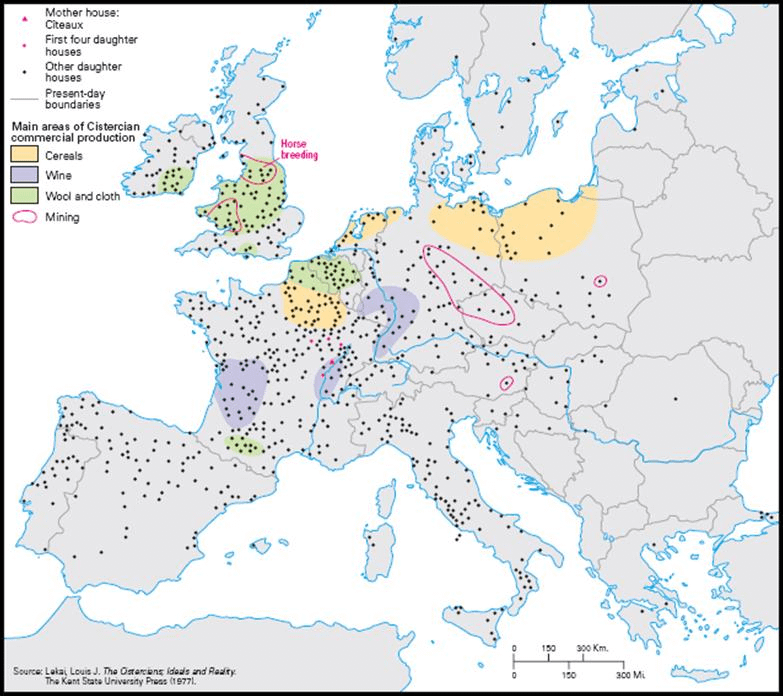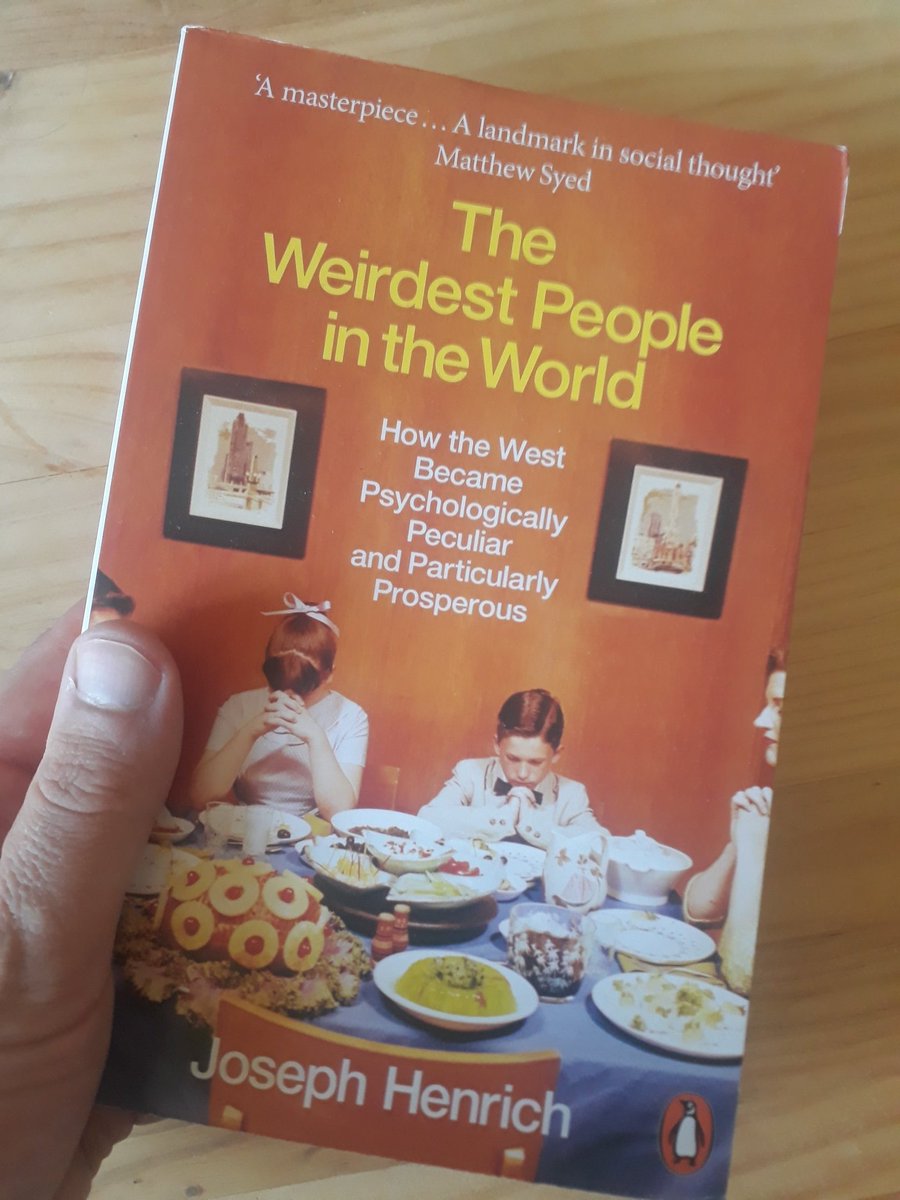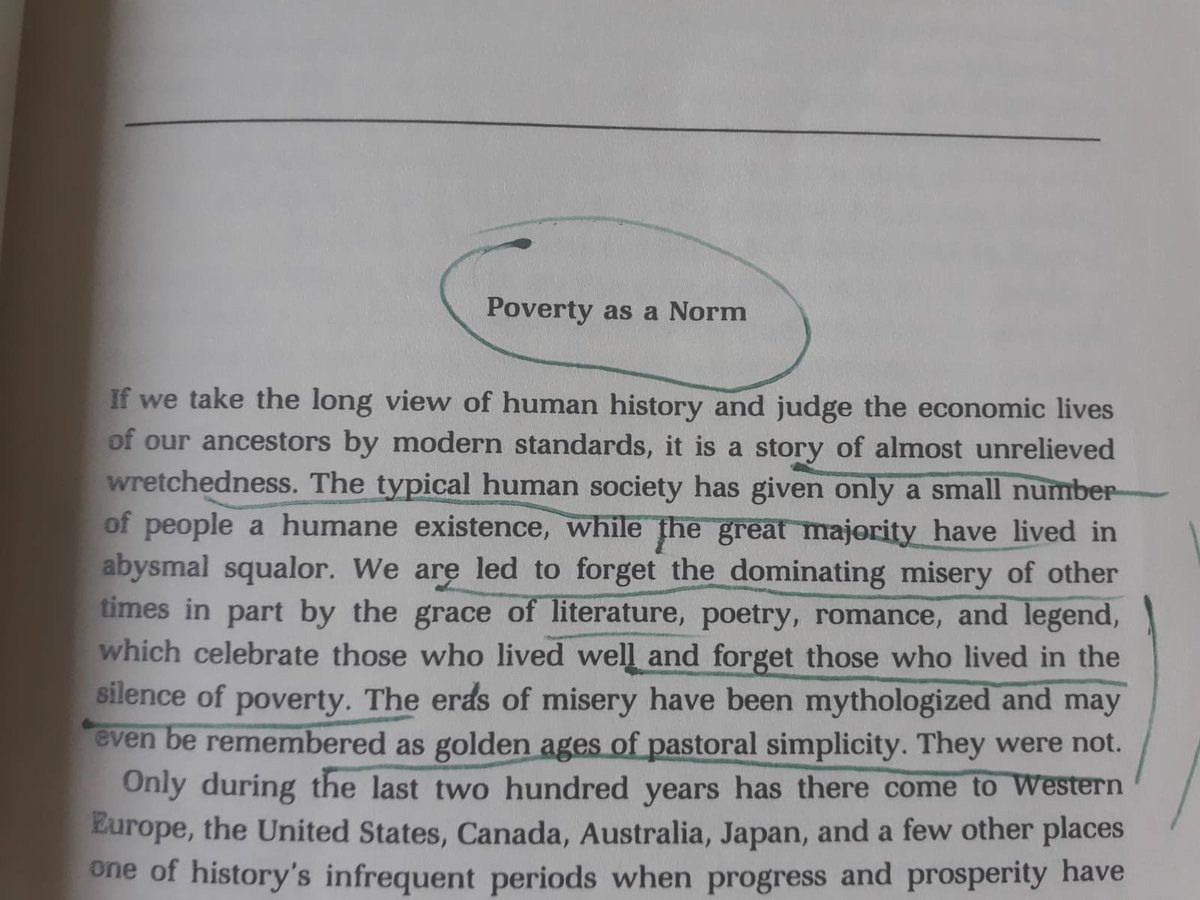One of the secrets behind the development of Europe and the West lies right here, in this little corner of Burgundy.
I've long wanted to write about the fundamental role played by the monks of the Cîteaux Abbey in Europe's economic and technological take-off: (1/10)⤵️🧵


I've long wanted to write about the fundamental role played by the monks of the Cîteaux Abbey in Europe's economic and technological take-off: (1/10)⤵️🧵


The Cîteaux Abbey was founded on 21 March 1098. The Cistercian monks advocated asceticism and made work a fundamental value, in contrast to the wealthy nearby abbey of Cluny, which they criticised for devoting too little time to work in daily life. 

Cîteaux would develop an extensive European network: it was the mother abbey of more than 500 monasteries, from Portugal to Scotland, from Provence to Romania. It was a truly pan-European multinational.
So, what was its fundamental impact on Europe's development?
So, what was its fundamental impact on Europe's development?

Beyond the immense spiritual influence of Cîteaux (& Cluny) on medieval Europe, Harvard anthropologist 🇺🇸 Joseph Henrich shows that Cistercian monasteries played a crucial role inshaping the mentalities and techniques that paved the way for the industrial revolution.




First, mentalities.
Henrich explains that several centuries before Protestantism (at the origin of the spirit of capitalism according to Max Weber), the Cistercian monks propagated the work ethic throughout Europe. It is based on an academic study (Andersen
Henrich explains that several centuries before Protestantism (at the origin of the spirit of capitalism according to Max Weber), the Cistercian monks propagated the work ethic throughout Europe. It is based on an academic study (Andersen

& al, 2011) on the influence of Cistercian monasteries in England: the more Cistercian monasteries a county had, the more its current inhabitants respond that children should be taught the importance of hard work. 

Next, the techniques.
The Cistercian monks were obsessed with agricultural and industrial innovation. More production meant more resources to serve their spiritual mission. Every year, monks from the European daughter abbeys came to Cîteaux:
The Cistercian monks were obsessed with agricultural and industrial innovation. More production meant more resources to serve their spiritual mission. Every year, monks from the European daughter abbeys came to Cîteaux:

They took advantage of the opportunity to share their technical and agricultural advances. Innovation was thus disseminated throughout Europe. And people living close to the monasteries benefited because the monks taught them about these advances. He quotes a study




showing that English counties with Cistercian monasteries enjoyed faster growth in productivity from the 13th century onwards. 

Another concrete example: it was in the forge of the Burgundy Abbey of Fontenay that the hydraulic hammer was invented in the 13th century, a major breakthrough in the history of European metallurgy.




In his book La Religion industrielle, philosopher Pierre Musso explains that it was in the European monasteries of the 12th century that the concept of productivity first appeared. Monks divided their time between prayer and work ("ora et labora", pray and work):



improving productivity at work meant that more time could be devoted to prayer. The spirit of production and the value of work developed in these monasteries: for the author, industry was originally a Western vision of the world.
The monastery is the ancestor of the factory.

The monastery is the ancestor of the factory.


In conclusion, these Cistercian monks did more than just pray to God:
throughout Europe, they sowed the seeds of the industrial revolution that would enable the continent to achieve an economic and technological take-off unprecedented in the history of mankind.
throughout Europe, they sowed the seeds of the industrial revolution that would enable the continent to achieve an economic and technological take-off unprecedented in the history of mankind.

Note: once again, we see that Europe's development is linked to its cultural particularities. The discourse of repentance "Europe became powerful through slavery or colonisation" is simply false. These are consequences, not causes. 

Sources :
- "The WEIRDest people in the world" by J. Henrich
- "La Religion industrielle" by Pierre Musso
- "Religious Orders and Growth through Cultural Change in Pre-Industrial England", Andersen & al, 2011
- "The WEIRDest people in the world" by J. Henrich
- "La Religion industrielle" by Pierre Musso
- "Religious Orders and Growth through Cultural Change in Pre-Industrial England", Andersen & al, 2011
You can follow me on 𝕏 and subscribe to my newsletter Why the West (link in my 𝕏 bio), I regularly publish on the economy and the identity of civilizations (the West, 🇯🇵, 🇮🇳...).
End of thread (10/10).
End of thread (10/10).
@holland_tom @pmarca @GerardAraud @KonstantinKisin @bo66ie29 @RichardHanania @richard_landes @DavidEngels12 @Noahpinion @FriedrichHayek @GarettJones @epkaufm @Valen10Francois @d_foubert @razibkhan
The direct link to my newsletter Why the West:
whythewest.com/p/how-the-west…
whythewest.com/p/how-the-west…
@EuropeanPan @sapinker @ErikBootsma @erica_abbett @Lessons_History @historylust @MedievalScholar @unravelvirtue @RewiretheWest @DavidDeutschOxf @GillVerd @BasedBeffJezos
• • •
Missing some Tweet in this thread? You can try to
force a refresh











